Ranking the Star Wars films gives me a chance to rate them without writing full reviews. I’ve always wanted them listed on my site—to show where they fit with other F&SF films, but thought it was a bit silly to fully review the first six. The overlap between “People who do not already have a strong view on Star Wars I-VI” and “People who read my web site” is zero. Here I can just quickly state my feelings on the earlier films without bothering to go into details that no one cares about. So, starting with #11
#11 The Rise of the Skywalker 
We start from scratch with new villains, a new threat, a new big bad, new allies, a new quest, and new histories. By “new” I mean re-purposed from earlier Star Wars movies, but they’re not the ones from the last two films. The Last Jedi is mostly retconned out of existence as director J.J. Abrams replaces it with “borrowed” material. He starts with a copy of Return of the Jedi and then just jams in anything he can find. There are multiple characters who exist in this film only because they existed in earlier films. We have repeated action scenes, repeated locations, and a repeated finale, all of which exist only to point to those previous versions.
For a good portion of the runtime, its three friends off on adventures, which is pleasant, if overly familiar, like an adventure serial. It’s given some emotional force by the relationship between Rey and Kylo Ren. Whatever heart and depth the film has is with them. Of course, it all looks and sounds great. And unlike the first six films in the series, the acting isn’t a detriment. It’s cheap, lowest common denominator fun that I’ve seen too many times before. The Last Jedi tried to be more. The Rise of Skywalker puts in real effort to be less. (Full Review)
#10 The Phantom Menace 
Here is the beginning of a backstory we never asked for and never should have been given. Even good movies detailing Darth Vader’s history would have damaged the character and the original films, and these were not good movies. What is good about this entry? It is a very pretty film with great art design and costume design. And Ewan McGregor does the best job of acting of anyone in the first six films. The score is excellent and there’s one good lightsaber fight.
The bad? Everything else. The Jedi are idiots for no reason, with Qui-Gon Jinn being the icon for stupidity. He’s never right. No one besides McGregor can act, with Natalie Portman particularly bad. Then there’s Antisemitism, racist Asian characters, young Anakin, Shmi, immaculate conception, and the never-ending pod race. Even things that at first seem like they will be good are a mess. Darth Maul seemed “cool,” at least in the advertising, but in the actual movie, he is a void. He is given no personality at all. He is just some guy with a different kind of lightsaber. That’s his character. And of course, there’s Jar-Jar, who is not funny nor dramatic nor interesting. The general defense is that he’s “For the children,” but that’s insulting to children.
#9 Revenge Of The Sith 


The biggest mistake of Revenge of the Sith is making it so self-serious. It wants to be a Shakespeare tragedy, which is odd for a series based on afternoon serials. The second biggest was Hayden Christensen. Granted, the actor never had a chance, But Ewan McGregor managed to elevate his poor dialog while Christensen drags it down from horrendous into a deep, dark pit. He is so relentlessly bad that it is almost some kind of weird victory. How could he have managed this level of ineptitude? No moment with Christensen/Anakin is good, and you can’t escape him. Of all the prequel films, this is the one truly about Anakin, which makes it even worse as his arc is constructed so poorly. Nothing about his character is human. People do not act this way, and his sudden (and it is ridiculously sudden) switch to being a villain comes off as funny. But that’s not the only unintentionally humorous moment. Killing children shouldn’t be a laugh-riot, but there’s no other way to take it.
Does this film have anything? Well, again, it looks good. The music is good. And all the lightsaber battles are nicely choreographed—even if the one that is supposed to be dramatic has that stupid “I’ve got the higher ground” moment.
#8 Solo: A Star Wars Story 
Solo: A Star Wars Story exists to answer questions I wasn’t interested in having answered or specifically wanted to remain unanswered. Where did Han and Chewbacca meet? Where did Han get his trademark gun? What was the Kessel run like? How did the card game that got him the Milenum Falcon play out? If you were curious about any of these, then Solo is intended for you. I was not curious.
Solo avoids the lows of previous installments, but also never hits the highs. The basic story of a failed heist leading to a bigger heist and people and groups not being what they originally appeared is a workable foundation for a film. My only complaint with the movie they made is that the cinematography is too dark.
Of course the real problem is that this isn’t the movie they should have made. Phil Lord and Chris Miller were planning on making a comedy, but executives got scared and brought in workman director Ron Howard to make a safer film. The failure of Solo is in imagination. It takes no risks. It sits comfortably within the Star Wars canon. It was tailor-made for the fanboys who were upset that The Last Jedi wasn’t exactly what they imagined when they were six. You should never give the fans what they want, and more often than not, they will decide they didn’t really want it after all. (Full Review)
#7 Attack Of The Clones 
This film has a vast advantage over the other two prequel films: it has parallel stories. The Anakin stuff is again pretty bad, with Christensen putting in a career-mutilating performance as he and Natalie Portman utter uncomfortable “romantic” dialog. But with this film, if we removed the bad material, there’s still something left. Obi-Wan has his own quest with no Anakin in sight and that stuff is all pretty good. There are huge swaths of the film that aren’t embarrassing, which is a triumph for a prequel film. It also helps that segments near the beginning and at the end that do involve Anakin are large ensemble action scenes, thus he can’t completely destroy those. Yes, every time Christensen says anything “dramatic” it is cringe-worthy, but we aren’t stuck with him, and when we’re off on the water planet, I can just sit back and enjoy the movie. And as an added plus, there is Yoda with a lightsaber; when he broke that out, the entire theater cheered.
I also have a better view of this film than others because of how I first saw it. In 2002, IMAX films were shown on 2-hour reels and often if a film went over 2 hours, they would cut it. So my first viewing of Attack of the Clones was an IMAX version with 20 minutes cut—and they did a good job of cutting. It was 20 minutes less of Anakin. If I was ranking just that version, I’d move it up at least one place. That shows that this film, unlike The Phantom Menace and Revenge Of The Sith, is still salvageable. A good fan edit turns it into a very good film.
#6 Return Of The Jedi 


This film is a lot of fun, no question. I enjoyed it when I first saw it and still do. That doesn’t mean it isn’t a disaster, just an enjoyable disaster. The problems really start with the acting. Yes, all the first six films have poor acting but among the original trilogy, it stands out here. This is partly due to the actors’ displeasure with the script. Harrison Ford wanted Han to die and when not only did he not, but he was forced to say sub-par dialog, Ford tossed in the towel. He wasn’t trying, and it shows. The rest of the cast isn’t good either. There’s also the repeated plot elements (another Death Star and another run of little ships to blow it up) and the Ewoks. There’s no getting around those teddy bears; they could have been cute or transgressive (if made vicious), but instead they scream out Mattel. By this time it was clear that much of the films were about selling merchandise, but couldn’t it have been done inconspicuously? Even things that would have been good in the first film were feeling old by now. The cycle chase is a bore, and I’ve already mentioned the final space battle. And no, they did not “always know” that Leia was Luke’s sister (a reveal that does not bear up to scrutiny). It’s a clunky retcon.
So what’s good? As always for the franchise, it looks good. We’re given the iconic Slave Leia that gets a bonus with the strangulation scene. The final lightsaber duel is excellent (though that is interrupted by the Emperor—he’d have won if he just shut up). And that’s about it.
#5 The Force Awakens 
Star Wars 7 is a construction more than a film, made up of pieces from the other six films (mainly the original three and primarily A New Hope). It’s all homages and repeats. It’s well done, with every aspect meticulously crafted. We may have seen it all before, but the new paint looks good. The actors do better than under Lucas’s care, and so do the characters. It supplies exactly what the audience asked for. I don’t believe art involves supplying just what an audience asks for. That’s the job of hucksters and conmen. This is the finest movie you are likely to see that demonstrates the emptiness of the blockbuster business. It’s a bullseye on a low target. It’s hollow corporate fun. It would have never created a legend, but it can live off of one.
#4 Rogue One 
The narrative stumbles in the first half, with time wasted on needless travelogues and meeting characters of no importance, while we are distracted by obvious call-backs to earlier films. Re-watching Rogue One, the first hour comes off even worse than on first viewing.
Then it turns it all around. Suddenly it knows its direct kin: The Dirty Dozen, Where Eagles Dare, and The Guns of Navarone, with behind-enemy-lines skirmishes and a few actions that would keep our protagonists out of polite society. This isn’t the heroism of special folks, but of soldiers in a war, that comes with hard choices, violence, and real sacrifice, and it makes for the most satisfying Star Wars film since 1977. The ending makes sitting through the failings of the first act worthwhile. This isn’t the film to bring the magic back to the Star Wars franchise, but it is the one to bring back meaning and emotion, and that’s better. (Full Review)
#3 The Empire Strikes Back 
Note: For those grabbing torches and pitchforks, I am giving Empire a good rating. I know here is where people will get upset with me as many want to rank Empire as #1, but it just doesn’t belong there. Yes, the cinematography is a little better, but it was good in Star Wars {A New Hope}. Yes, the acting has improved, but it still isn’t that good. And the SFXs might be a touch better, but that’s insignificant and they were a wonder already in the first film. And I do not give it points for introducing Boba Fett. Why does anyone care about some tertiary character with a so-so costume?
Sure, Empire has some great battle scenes. It also has one of my favorite lightsaber duels. And while character development is shaky and nothing deep is delivered, it isn’t embarrassing either. This is a good film; I don’t think I need to convince anyone of that.
But it has some problems. First, it’s a bridge film. It has no plot, but is only a couple chapters in the larger story. It starts nowhere and ends nowhere. Then there is the reveal where the response is unearned. The only reason anyone thinks it is a big deal that Vader is Luke’s father is if they themselves would find this a big deal in their own life. The film does nothing to sell this. Why does Luke care? Why does he scream out in that pathetic way? If Aunt Beru had been Vader, I can see why that would have had some emotional resonance; he knew her. Luke is a whiny kid with daddy issues, but that isn’t enough to explain it, nor is it a good thing that our hero turns out to be more of a child here than when we started with him. But besides the film not making this moment important, it has the effect of shrinking the universe as well as shifting the message. In A New Hope, the universe is vast and anyone could become a hero. Now everyone you run into is family and the saga has shifted to being one of royalty and chosen ones. It would be a very long time before this failing was repaired.
#2 The Last Jedi 
As The Force Awakens was a remake of Star Wars {A New Hope}, The Last Jedi is a remake of The Empire Strikes Back, but it is a cleverly made, artistically constructed, updated and upgraded remake. It is shocking how the same this movie is while managing to feel really different.
Rey, Poe, and Finn have previously hidden depth. And Kylo Ren is significantly less annoying, no longer appearing to be whining Anaken 2.0. Rose is a nice addition, carrying half the theme. And Luke finally comes into his own as a character.
The Last Jedi has humor without ever getting campy, and cute critters that don’t get on my nerves (like Ewoks…). And damn is it pretty. There are some sets (the throne room) and some shots (overhead of the speeders on the salt planet) that are magnificent. Plus, as the most layered Star Wars film, it finally undoes the damage of Empire by stepping away from the elite nobles and special chosen ones that have infested the franchise for too long. Finally, we are not in the saga of one family, but in a universe where heroism doesn’t depend on blood. (Full Review)
#1 Star Wars {A New Hope} 


It all started here. It was all new. I’d never seen anything like this before and it was breathtaking. The first scene, with the rebel ship flying overhead followed by the star destroyer, is amazing and has never been equaled. Star Wars took old stories and myths and icons, tossed them into a sandy blender, and came up with something new. It isn’t perfect. The acting is…rough, and the dialog is rougher. Luke is an annoying git and the emotional states of the characters don’t hold up under inspection. But all is forgiven here. The later films don’t get a pass on their weaknesses, but being first counts. No one had seen a lightsaber before and they’ve never been as good. The Death Star was incredible (Death Stars 2 & 3 were not). Darth Vader was a forceful and scary villain; simply due to familiarity, he could never manage this again. Star Wars is exciting and beautiful and opens up alien worlds and a galaxy far, far away. It could only be done once, and once is enough.
 What a year it has been in film. My best list is for fantasy and science fiction films, in all their many forms, so everything from dedicated scientists in the near future to dragons and elves to evil clowns (though no evil clowns will made this list). And it has been an amazing year for genre film. It is the best year ever for superhero films. No, my favorite superhero film of all time is not from 2017. But there are four such films in my top 10. No year has come close to that. There’s also an adult fairytale, a giant monster flick, a musical, a zombie film, a space opera, and even a slasher. (If you are more interested in the worst of the year, my roundup is here.)
What a year it has been in film. My best list is for fantasy and science fiction films, in all their many forms, so everything from dedicated scientists in the near future to dragons and elves to evil clowns (though no evil clowns will made this list). And it has been an amazing year for genre film. It is the best year ever for superhero films. No, my favorite superhero film of all time is not from 2017. But there are four such films in my top 10. No year has come close to that. There’s also an adult fairytale, a giant monster flick, a musical, a zombie film, a space opera, and even a slasher. (If you are more interested in the worst of the year, my roundup is here.)









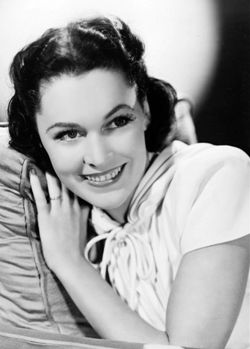 Maureen O’Sullivan was the great ingénue. She appeared to be sensual and exciting while simultaneously being innocent and cute. It was a balancing act few have managed to pull off. Unfortunately it put her in mainly supporting roles where she was the goal—of the eight films below, only two have her as the lead. The exception was the part that brought her fame: Jane in the Tarzan franchise. For the first films, Tarzan is not the star, but Jane, and it is a Jane who is at ease scantily clad and sexy, that is until the production code caught up with the 3rd movie.
Maureen O’Sullivan was the great ingénue. She appeared to be sensual and exciting while simultaneously being innocent and cute. It was a balancing act few have managed to pull off. Unfortunately it put her in mainly supporting roles where she was the goal—of the eight films below, only two have her as the lead. The exception was the part that brought her fame: Jane in the Tarzan franchise. For the first films, Tarzan is not the star, but Jane, and it is a Jane who is at ease scantily clad and sexy, that is until the production code caught up with the 3rd movie.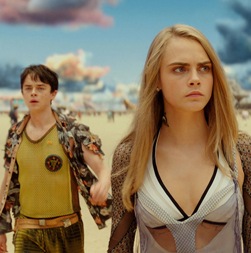 It’s time for my 10 Worst Fantasy and Science Fiction Films of 2017. I’ve been ranking the films all year as I see them, and this won’t quite match that list as I want an apples to apples comparison, so I’m only including wide releases or big budget pictures. Sure, some micro-budget VOD films would break into this list, but there’s no joy in attacking those. I’m looking at the great follies of man.
It’s time for my 10 Worst Fantasy and Science Fiction Films of 2017. I’ve been ranking the films all year as I see them, and this won’t quite match that list as I want an apples to apples comparison, so I’m only including wide releases or big budget pictures. Sure, some micro-budget VOD films would break into this list, but there’s no joy in attacking those. I’m looking at the great follies of man.





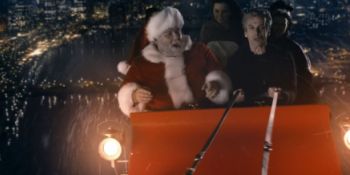 Twelve, Clara
Twelve, Clara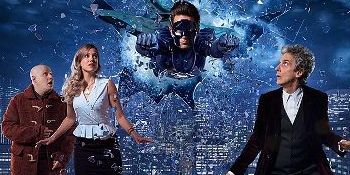 Twelve, Nardole
Twelve, Nardole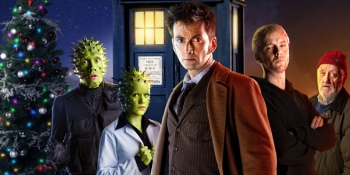 Ten, Wilfred
Ten, Wilfred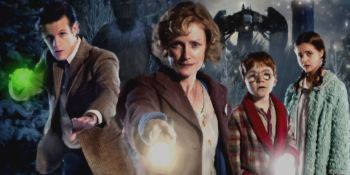 Eleven
Eleven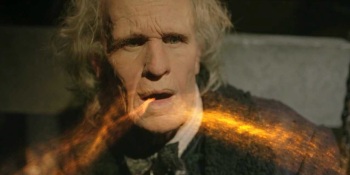 Eleven, Clara
Eleven, Clara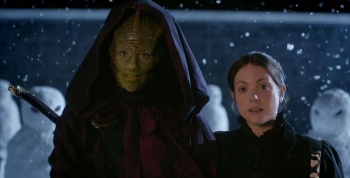 Eleven, Clara, Paternoster Gang
Eleven, Clara, Paternoster Gang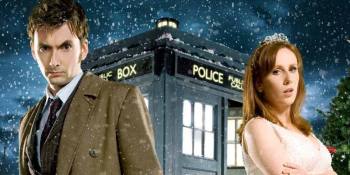 Ten, Donna
Ten, Donna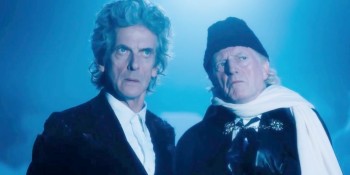 Twelve, One, Bill
Twelve, One, Bill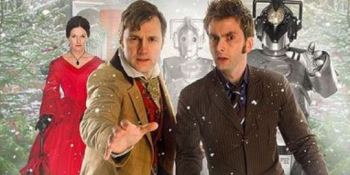 Ten, Jackson Lake
Ten, Jackson Lake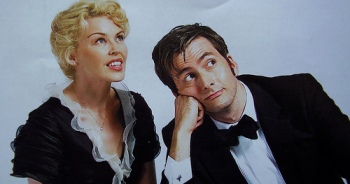 Ten, Astrid
Ten, Astrid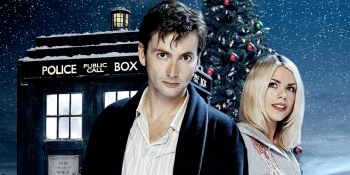 Ten, Rose
Ten, Rose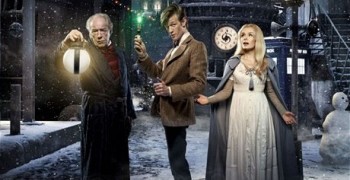 Eleven, Amy, Rory
Eleven, Amy, Rory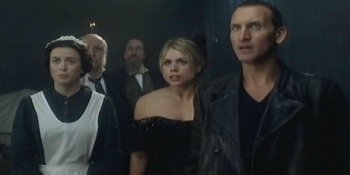 Nine, Rose
Nine, Rose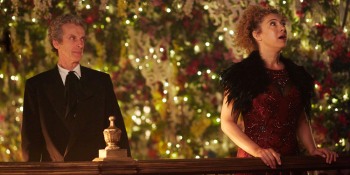 Twelve, River
Twelve, River








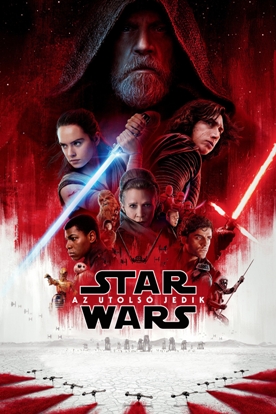

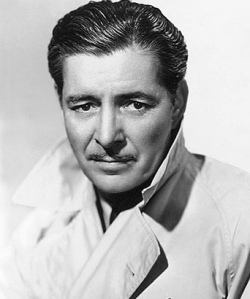 The best film stars are defined by their voices and none had a finer voice than Ronald Colman; I would bet it has been imitated more often than any other. His good looks got him parts in silent cinema, but when the talkies came along, he really bloomed—the man with the mellifluous voice. But even with that liquid gold voice, great parts were few and far between, and even this list of his best films gets a bit weak toward the end.
The best film stars are defined by their voices and none had a finer voice than Ronald Colman; I would bet it has been imitated more often than any other. His good looks got him parts in silent cinema, but when the talkies came along, he really bloomed—the man with the mellifluous voice. But even with that liquid gold voice, great parts were few and far between, and even this list of his best films gets a bit weak toward the end.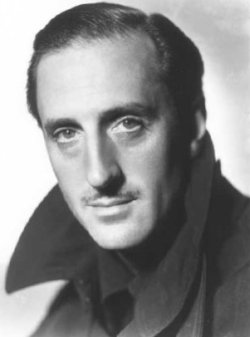 An actor with both one of the most distinctive profiles and most distinctive voices in Hollywood, Basil Rathbone became identified with Sherlock Holmes to his dismay. He should have taken more joy in the connection as few of his other lead roles have been remembered. He was in a large number of classic films, but, except for
An actor with both one of the most distinctive profiles and most distinctive voices in Hollywood, Basil Rathbone became identified with Sherlock Holmes to his dismay. He should have taken more joy in the connection as few of his other lead roles have been remembered. He was in a large number of classic films, but, except for 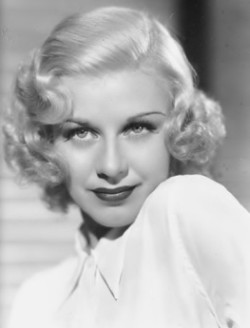 Ginger Rogers will forever be known as the dancing partner of Fred Astaire; they fit together. Together they made some of the greatest film musicals of all time. She could manage the steps, as well as both the sophisticated and common attitudes needed for the comedy and romance. Astaire danced with others who were technically better, but no one who was such a perfect partner. Apart from Astaire she strove to have a “serious” career (after a group of “let’s put on a Broadway show” films) that led to a string of turgid melodramas that she could never pull off—not that anyone could have made Kitty Foyle watchable. Her best “solo” works were comedies.
Ginger Rogers will forever be known as the dancing partner of Fred Astaire; they fit together. Together they made some of the greatest film musicals of all time. She could manage the steps, as well as both the sophisticated and common attitudes needed for the comedy and romance. Astaire danced with others who were technically better, but no one who was such a perfect partner. Apart from Astaire she strove to have a “serious” career (after a group of “let’s put on a Broadway show” films) that led to a string of turgid melodramas that she could never pull off—not that anyone could have made Kitty Foyle watchable. Her best “solo” works were comedies.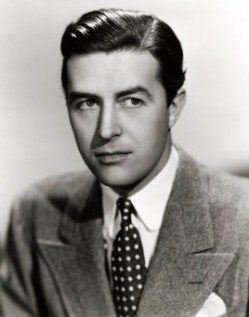 Handsome and debonair, Milland’s early career was mainly in romantic comedies and light action films. His big break came with The Jungle Princess (1936), which made Dorothy Lamour a star as The Sarong Girl. His reputation changed with The Lost Weekend (1945) which won multiple Oscars, but is hard to view as anything other than suffering-porn now—it lacks a plot and an ending. It was no doubt important for people who never realized that alcoholism was bad. But this did alert Hollywood to his skill as a serious actor.
Handsome and debonair, Milland’s early career was mainly in romantic comedies and light action films. His big break came with The Jungle Princess (1936), which made Dorothy Lamour a star as The Sarong Girl. His reputation changed with The Lost Weekend (1945) which won multiple Oscars, but is hard to view as anything other than suffering-porn now—it lacks a plot and an ending. It was no doubt important for people who never realized that alcoholism was bad. But this did alert Hollywood to his skill as a serious actor.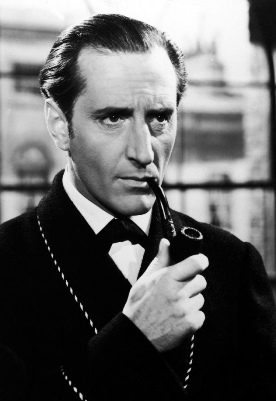 Basil Rathbone starred as Sherlock Holmes in 14 films, with Nigel Bruce as a blustering, foolish Doctor Watson. When I watched these as a child—broadcast one each week by a local TV station—I treated them like a TV show, with all of the movies being approximately the same. They aren’t.
Basil Rathbone starred as Sherlock Holmes in 14 films, with Nigel Bruce as a blustering, foolish Doctor Watson. When I watched these as a child—broadcast one each week by a local TV station—I treated them like a TV show, with all of the movies being approximately the same. They aren’t.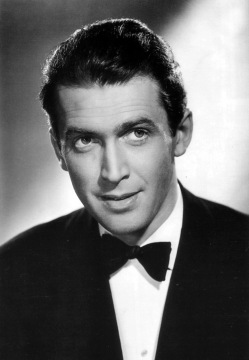 Stewart had a more varied career than most actors and far more than most leading men of the golden age. He not only was in, but was known for, comedies, dramas, melodramas, family films, romances, thrillers, and Westerns. Early in his career, he was in a string of sentimental Frank Capra movies, with It’s A Wonderful Life being the most famous. I’m not a fan of these as they tend to go over the top with shmaltz, letting both real human interaction and humor die for the sake of sentimentality. The worst offender is You Can’t Take It with You, a wonderful play that is gutted by Capra. Luckily, Stewart had other moments, with strong turns in comedies before becoming one of Hitchcock’s two favorites (
Stewart had a more varied career than most actors and far more than most leading men of the golden age. He not only was in, but was known for, comedies, dramas, melodramas, family films, romances, thrillers, and Westerns. Early in his career, he was in a string of sentimental Frank Capra movies, with It’s A Wonderful Life being the most famous. I’m not a fan of these as they tend to go over the top with shmaltz, letting both real human interaction and humor die for the sake of sentimentality. The worst offender is You Can’t Take It with You, a wonderful play that is gutted by Capra. Luckily, Stewart had other moments, with strong turns in comedies before becoming one of Hitchcock’s two favorites (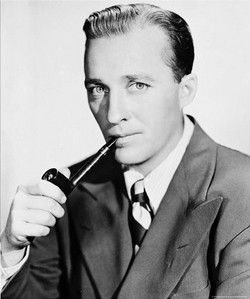 Some lists are hard. Some are easy. And some are pretty much repeats. This one is a
Some lists are hard. Some are easy. And some are pretty much repeats. This one is a